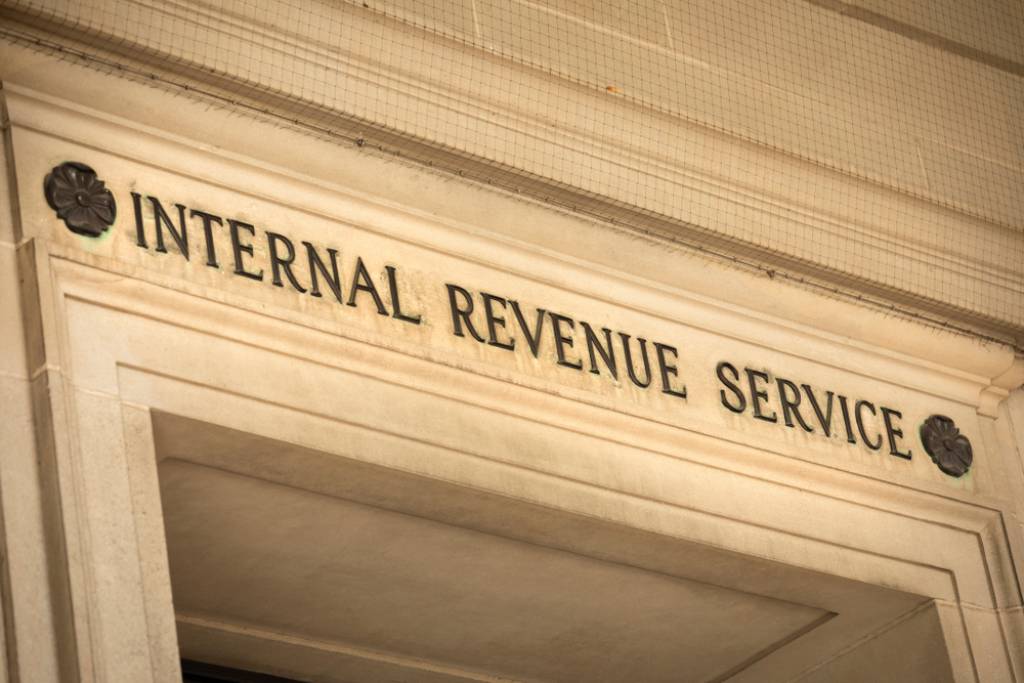Paying your taxes can be stressful. If you have a salaried job, your income taxes are deducted from your paycheck. This in and of itself might seem pretty cut and dry. However, there are independent professionals who might pay their own income taxes, and have more to consider.
Filing your tax return comes with many questions. Sometimes focusing on the details makes us forget the big picture, which is the legality of filing your return. Simply put, failure to file your tax return is against the law. But does this mean the IRS can arrest you?
Let’s dive into the details surrounding IRS criminal charges a bit more in depth.

Can the IRS Send You To Jail?
We have all heard stories of criminal tax fraud or false statements. Most of those stories are related to high profile tax cases, as opposed to individual, middle-class taxpayers. But anyone can go to jail for taxes provided they willfully committed a tax crime.
This is important, because many taxpayers worry about making an honest mistake. After all, there is a lot of information that goes into filing a tax return. And a false tax return doesn’t automatically equate to years in prison. But willfully evading your taxes or committing tax fraud ups your chances dramatically.
For example, 61,142 cases were reported to the IRS in fiscal year 2022. 401 of those cases involved tax fraud. By definition, tax fraud is when an individual or business falsified information on a tax return. This action is taken intentionally with the goal of limiting their amount of tax liability.
Essentially, this is a form of cheating to pay less. This can include claiming false deductions, using fake Social Security numbers, not reporting income, or claiming personal expenses as business expenses. Tax evasion is a commonly reported example of tax fraud.
Pertaining to the 2022 numbers mentioned above, 59.3% of offenders were sentenced to prison. The average sentence for these offenders was 13 months. However, as technology improves, tax fraud is getting more difficult to achieve. The 2022 numbers indicate a decrease of 22.4% since fiscal year 2018.
So, can you go to jail if you owe the IRS? The simple answer is yes, but there needs to be willful illegitimacy in your tax filing. But this brings up another question. How does the IRS know if your false information is intentional or an honest mistake?
How IRS Criminal Charges Are Initiated
The IRS isn’t looking over the shoulder of every single taxpayer. Not only are there not the resources, but most taxpayers are honest about filing their tax returns. However, the IRS does conduct audits, and they have agents and collectors who provide information.
This information typically highlights an irregularity or concerning pattern of possible fraud. Any information reviewed at this point is not considered “criminal” yet. This duration of review is considered “preliminary,” and is used to decide whether further investigation is necessary.
If the investigation is approved to continue, it is still an investigation. There are many taxpayers who might not be aware that a criminal investigation is different from a criminal prosecution. Prosecution means you are being charged with an offense. During an investigation, evidence and data are simply being compiled.

During the investigation, the IRS will review all sorts of information. This might include bank account information, third party witness testimony, or other financial documentation.
Additionally, during an investigation, it is common for taxpayers to have a tax representative on their side. This enables a team of tax professionals to handle communication with the IRS, or investigative bodies. It also ensures your rights are respected during the process.
After all the evidence has been reviewed, a determination will be made to either “discontinue” or “prosecute.” Even so, this does not mean that you will face jail time. But it does mean that charges are being laid against you. You still have options, which is where tax attorneys and professionals come into play.
Work With Tax Professionals
At the end of the day, the IRS cannot arrest you and send you to jail for not paying your taxes. The same is true for making mistakes on your tax filings. However, intentionally trying to mislead the IRS is another matter. Jail time is a possibility for those who attempt to commit tax evasion or other serious fraud.
Your best bet is to work with tax professionals on all of your tax-related matters. This will ensure that all your bases are covered, and will eliminate stress from the process. And regardless, don’t fear that the IRS is going to show up and send you to jail. There are many steps to alleviating a tax error or mistake.
Our team of tax professionals is here to help with any step of the process. From filing taxes to asking questions to representing you before the IRS. Taxes are part of life, and so there is no reason they need to be stressful.
Reach out to our team and schedule a free consultation.
